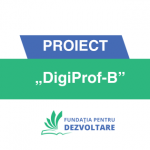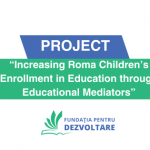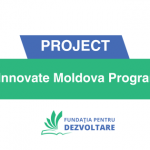Educational and socio-psychological inclusion of children left behind by their migrant parents – Phase II
Financially supported by the Pestalozzi Foundation and implemented during 2023–2025, the project is designed to support children left behind by their migrant parents, promoting their integration into society and enhancing their future prospects.
Project Goal: To improve the school environment to provide inclusive educational services, with a focus on children whose parents are working abroad. It also seeks to strengthen intersectoral cooperation and enhance data collection mechanisms regarding migrant children.
Project Components:
- Strengthening schools’ capacity to provide educational, psychological, and social inclusion support for migrant children.
- Improving social, educational, and psychological assistance mechanisms for migrant children.
- Creating a favorable legal framework for children whose parents are working abroad.
Project Beneficiaries:
- Children:
- 7th–9th grade students participate in extracurricular activities focused on career guidance, life skills, STEAM, and digitalization.
- Schools receive necessary supplies to ensure smooth implementation of activities.
- Children benefit from high-quality psychological assistance, including career guidance.
- Student councils receive training and capacity-building sessions and participate in project idea competitions, receiving mini-grants to implement their ideas.
- Participants have the opportunity to engage in intercultural exchanges in Trogen, Switzerland.
- Teachers, psychologists, support staff, and school administrators receive training and mentorship.
- Teachers leading extracurricular activities are trained and provided with a Teacher’s Guide, Student Workbook, and curriculum materials for Life Skills, Career Guidance, STEAM, and Digitalization programs.
- Parents and legal guardians benefit from workshops with experts.
- Local Public Authorities (LPA) and Intersectoral Teams
- Members of interdisciplinary teams will receive training to strengthen their professional skills, teamwork, and mentorship abilities.
- The database for monitoring migrant children will be expanded to new localities included in the project.
Target group: Migrant children in 8th–9th grades.
Local partners: 15 schools across Moldova.
This project enhances educational access, career readiness, and social inclusion for migrant children, equipping them with the skills and support needed for a successful academic and professional future.




